 Head to pretty much any pub up and down the country and you’re not only likely to find a quiz machine nestled quietly in the corner but probably also find some posters for the actual quiz that takes place every week.
Head to pretty much any pub up and down the country and you’re not only likely to find a quiz machine nestled quietly in the corner but probably also find some posters for the actual quiz that takes place every week.
Sometimes it will have a cash prize attached, whilst other pubs will have a raffle that you can take part in if you’re doing the quiz that gives you the chance to win yourself some money if your ticket is drawn or you pull off some other feat.
The question, of course, is whether or not this sort of thing classes as gambling. It is not as if there’s a one-size-fits-all type ruling, so is it different depending on whether a pub offers an outright cash prize compared to vouchers to be spent at the pub at a future date? What if there’s no prize attached to the quiz but there is a raffle that runs alongside it?
These are the sorts of the questions that the Gambling Commission asks and we’ll try to answer.
Where You Are Matters
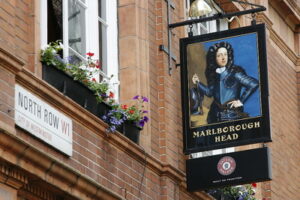 The United Kingdom Gambling Commission has specific rules in place when it comes to gambling, depending on where it is that you’re doing it. A pub is a different type of building to a miners’ welfare institute, which is different from a members’ club. All of them are entirely different things to a commercial club, whilst whether or not the venue in question has an alcohol licence also changes how they’re seen by the UKGC.
The United Kingdom Gambling Commission has specific rules in place when it comes to gambling, depending on where it is that you’re doing it. A pub is a different type of building to a miners’ welfare institute, which is different from a members’ club. All of them are entirely different things to a commercial club, whilst whether or not the venue in question has an alcohol licence also changes how they’re seen by the UKGC.
As the title suggestions, we’re limiting what we’re looking at here to public houses, which is important to define at the start. Should you have read the rules around this issue when it comes to a members’ club and wonder why we’re not mentioning certain things, that explains it. The Gambling Commission defines pubs as a venue that ‘has a bar at which alcohol is served without a requirement that alcohol is served only with food’.
When it comes to pubs, the Gambling Commission is quick to outline that ‘Gaming and the use of gaming machines is only permitted on alcohol-licensed premises during the hours that the premises licence allows the sale of alcohol.’ To put it another way, if you can’t legally buy a pint then you also won’t be able to play on a gaming machine or take part in a pub quiz. Gaming, meanwhile, ‘is only covered by the Act if it is played for prizes of money or money’s worth’.
What Are You Playing For?
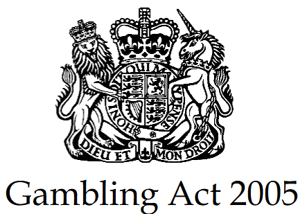 ‘The Act’ in question in the above quote refers to the Gambling Act of 2005. The same Act also outlines that what the prize is on offer will change how the activity taking place is viewed. The relevant paragraph says, “Part 12 of the Act provides that, in clubs and premises with an alcohol licence, certain gaming (including poker) is exempt, subject to stakes and prizes limitations or, if appropriate permissions are held, then there can be unlimited stakes and prizes.”
‘The Act’ in question in the above quote refers to the Gambling Act of 2005. The same Act also outlines that what the prize is on offer will change how the activity taking place is viewed. The relevant paragraph says, “Part 12 of the Act provides that, in clubs and premises with an alcohol licence, certain gaming (including poker) is exempt, subject to stakes and prizes limitations or, if appropriate permissions are held, then there can be unlimited stakes and prizes.”
There is a Code of practice for equal chance gaming in clubs and premises with an alcohol licence, which dictates that local authorities are permitted to ask a pub for proof that they’re following the various rules and regulations of the Code at any given moment. If a public house is found not to be complying with the Code can have action taken against them, just as a casino or poker room not following the rules would also have action taken against them.
Another key point outlined by the Gambling Commission is that linked gaming is not allowed. In other words, the prize on offer can only be on offer at the pub where the quiz is taking place, with things becoming far more complicated if you start talking about quizzes that are simultaneously hosted in numerous venues. The rules are also slightly different for ‘equal chance gaming’, which has a stake limit of £5 in place.
If there is no prize whatsoever on offer for the winners of a pub quiz then it will be entirely legal without the publicans needing to worry about what the UKGC might do if they turned up. A pub quiz without a prize is basically just a slightly more fun exam, with no gambling rules coming into play. If, however, there’s a prize on offer then things change dramatically and what can and can’t be done needs to be thought about.
Pub Quizzes With Prizes
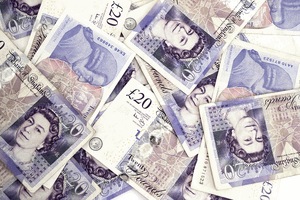 There is no difference between a pub quiz with a prize on offer and a poker tournament, as far as the Gambling Commission is concerned. The maximum stake per person is limited to £5, whilst the most that can be won in terms of prize money is £100 a day. The key thing to note is that it doesn’t matter what form that prize takes. Whether you’re going to be taking home £100 in cash or you’re playing for £100 in vouchers, the rules are the same.
There is no difference between a pub quiz with a prize on offer and a poker tournament, as far as the Gambling Commission is concerned. The maximum stake per person is limited to £5, whilst the most that can be won in terms of prize money is £100 a day. The key thing to note is that it doesn’t matter what form that prize takes. Whether you’re going to be taking home £100 in cash or you’re playing for £100 in vouchers, the rules are the same.
One thing that is also really interesting is that the same rules apply if there is a prize that runs alongside the quiz. Let’s say, for example, that there is no prize for the winner of the quiz itself other than a hearty well done, but that a raffle takes place alongside the quiz. The same rules will be in place for the raffle, even if the stake to enter is only £1. If the prize rolls over to the next week, for example, you could be risking things if it goes above the legal amount.
That being said, things do alter slightly when it comes to rolling the prize money. The maximum daily prize money is limited to £100, but the weekly prize money shifts to £500. That means that a rolled over prize should be OK as long as it doesn’t breach that £500 mark, simply because the publican could argue that it’s more than one week’s worth of prize money on offer and therefore the £100 limit isn’t relevant.
It’s certainly worth noting that the Gambling Commission actively recommends that publicans seek legal advice if they’re planning on hosting the likes of a poker tournament or a pub quiz with a particularly extravagant prize on offer. There are numerous different statutory prohibitions in place, which could be difficult to navigate for those without much experience. Children must be excluded, for example, whilst no levy can be charged on the stake money.
Possible Consequences
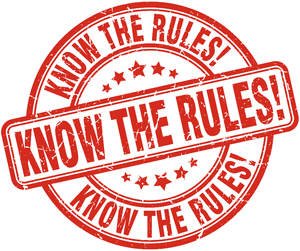 It would be understandable for a publican who is seeing people flock to their premises every week to want to gain a slice of the action. Surely a 10% skim of the money taken wouldn’t be too bad, would it? The answer, of course, is ‘yes’.
It would be understandable for a publican who is seeing people flock to their premises every week to want to gain a slice of the action. Surely a 10% skim of the money taken wouldn’t be too bad, would it? The answer, of course, is ‘yes’.
The Gambling Commission is very specific on what happens when people don’t follow their rules and they’re just as likely to clamp down on somebody running a pub quiz and breaking the rules as a bookmaker doing something similar.
In the event that someone does something that breaks the licensing rules, even if only slightly, the authorities have the ability to review the licence for the premises. On top of that, the fine that can be put in place has the potential to be unlimited and the guilty party could face up to 51 weeks in prison.
Ultimately, therefore, you really have to ask yourself if it is worth it considering what might happen should the authorities catch you doing it.
Different If It Is For Charity

The rules that are in place are for normal quiz nights that take place up and down the country on a daily basis. Things are slightly different when you start looking at events that are being run specifically with charitable intent. These are dealt with according to the non-commercial gaming provisions in Part 14 of the Gambling Act. As long as none of the proceeds from the event are going to be used for private gain, different rules apply.
Any money raised from the entrance fee to take part in the quiz, say, will be exempt from gambling rules as long as all of it is going to the good cause. At the same time, money made from the bar or pub in terms of drink and food sales will also be exempt as they’re not relevant. The only reason this would be different would be if you said that people had to buy a drink a meal in order to take part, which would complicate things significantly.
What About Quiz Machines?
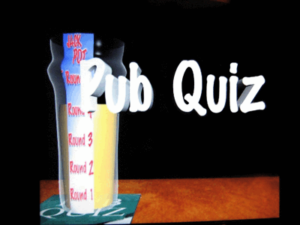 We know, then, that there are certain rules and regulations that are in place around pub quizzes, but do the same rules apply to quiz machines? Not really, given that the sort of quiz machines that you’ll find in pubs tend to be ones that have numerous game types on them that can include slot games. Whilst there is real skill and knowledge involved in playing a quiz machine over a slot or fruit machine, they’re treated similarly by the UKGC.
We know, then, that there are certain rules and regulations that are in place around pub quizzes, but do the same rules apply to quiz machines? Not really, given that the sort of quiz machines that you’ll find in pubs tend to be ones that have numerous game types on them that can include slot games. Whilst there is real skill and knowledge involved in playing a quiz machine over a slot or fruit machine, they’re treated similarly by the UKGC.
If a gaming machine offers a cash prize and said prize is more than the stake it costs to play on the machine then the publican must pay a Machine Games Duty. As with pub quizzes, the machines can only be played on during the hours that alcohol can be served. On top of that, the Code Of Practice must be adhered to at all times. One of the chief rules of the Code is that access to the machines must be prevented for those under the age of eighteen.
That’s not all that publicans need to think about when it comes to quiz machines on their premises. Another factor is that the machines must be provided by a supplier that has been given a licence by the Gambling Commission. If they have been supplied by someone else then they’ll be considered to be illegal machines and will pose ‘a serious threat to the licensing objectives’, according the UKGC. The machine ID plate and supplier details should be visible.
Winnings Are Tax Free
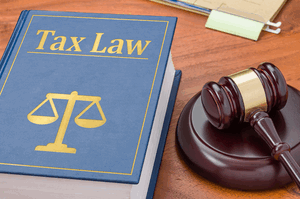 The final thing to mention on this page is that winnings made from either pub quizzes, raffles or other games associated with them like Higher Or Lower and any money made from pub quiz machines are all considered to be tax free. That is the joy of all of the aforementioned things being considered as facilitating gambling: any money made via gambling doesn’t have to have tax paid on it by the person who makes said money.
The final thing to mention on this page is that winnings made from either pub quizzes, raffles or other games associated with them like Higher Or Lower and any money made from pub quiz machines are all considered to be tax free. That is the joy of all of the aforementioned things being considered as facilitating gambling: any money made via gambling doesn’t have to have tax paid on it by the person who makes said money.
This can often lead to interesting cases of people that have essentially made a tax-free living from playing on quiz machines in pubs up and down the country. One such story emerged in 2012 when Christian Drummond revealed that he’d turned to quiz machines when he was unable to get a job. Soon he was earning as much as £60 an hour, visiting as many as 10,000 pubs in a year and having take home pay in the region of £60,000.
The then-40-year-old used his knowledge of things such as every single Dickens character, the number of sets played in every Wimbledon final and the population of African cities to earn enough money to pay for a wedding, clear his university fees and holidays abroad. When considering what tips he could offer others who like to take on pub quiz machines, Christian said the following:
- Keep an eye out for patterns in the questions and answers
- Play a game that gives a numerical target to reach in order to win a cash prize
- Play the same game every time where possible
- Don’t gamble with your answers
- Plan to win small amounts often rather than targeting the main jackpots
He was also quick to point out that playing on quiz machines day-in, day-out can be both physically and mentally draining. Though he doesn’t specifically say as much, it’s easy to imagine that the former University Challenge team captain would recommend that you avoid alcohol whilst playing…